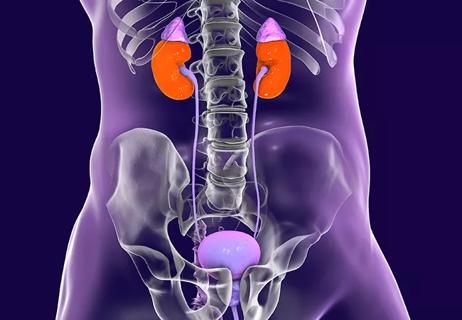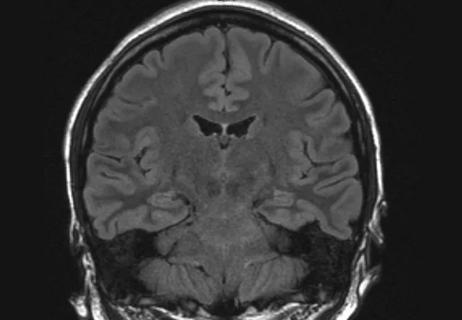Findings underscore the value of clinical monitoring in pregnant patients using SSRIs and SNRIs

Despite their relative ubiquity, selective serotonin reuptake inhibitors (SSRIs) and serotonin norepinephrine reuptake inhibitors (SNRIs) – first-line treatments for anxiety and depression – are known to increase the risk of bleeding due to their ability to interfere with platelet function. This has raised particular scrutiny in pregnant women, approximately 6%-8% of whom take antidepressants, and has prompted concerns about the risk of postpartum hemorrhage (PPH), a leading cause of maternal morbidity and mortality.
Advertisement
Cleveland Clinic is a non-profit academic medical center. Advertising on our site helps support our mission. We do not endorse non-Cleveland Clinic products or services. Policy
Although data regarding the relationship between antidepressant use and the risk of PPH have been mixed, several large-scale observational studies indicate that taking SSRIs and SNRIs in the month leading up to delivery may lead to a small but notable increase in the risk of PPH.
A new study led by Cleveland Clinic psychiatrist Adele Viguera, MD, urges prescribers to consider this risk when assessing each patient’s medical history and the mental health benefits of antidepressants, particularly in the peripartum period. The study was published in a recent issue of the Journal of Women’s Health.
Using data from the National Pregnancy Registry for Psychiatric Medications (NPRPM), Dr. Viguera and her team found a concerning link between SSRI/SNRI use near delivery and an increased risk of abnormal postpartum bleeding. Despite the heterogeneity of the previous studies, these latest findings contribute to a growing body of evidence indicating that SSRI/SNRI exposure may heighten the risk of PPH in certain patients, Dr. Viguera says.
A review of the NPRPM revealed an overall PPH incidence of 13.1%, substantially higher than baseline estimates of 2%–4% in the United States. SSRI/SNRI exposure was associated with a PPH unadjusted odds ratio of 1.42 compared to no exposure (95% confidence interval [CI: 0.97, 2.08]) and an adjusted odds ratio of 1.33 (95% CI [0.90, 1.97]). When stratified by delivery type, the odds ratio following vaginal delivery among women exposed to SSRIs/SNRIs was 1.04 (95% CI [0.63, 1.70]) versus 2.31 (95% CI [1.25, 4.26]) for C-section delivery; the adjusted C-section odds ratio was 2.21 (95% CI [1.18, 4.13]).
Advertisement
These findings align with existing evidence that SSRI/SNRI use can increase bleeding risk, especially during or after surgical procedures in nonpregnant populations, Dr. Viguera says. Although this risk is not clinically significant for most patients, she underscores the necessity of enhanced postpartum monitoring in women taking antidepressants, especially those with additional risk factors for PPH, including previous births, prolonged labor, infection and obesity.
Of note, continuous exposure to SSRIs – especially at higher doses – appears to correlate with a greater risk of PPH when compared to those with minimal exposure.
Despite these findings, however, Dr. Viguera discourages the routine discontinuation of SSRIs and SNRIs in pregnant women solely for the prevention of PPH.
“The implications of untreated depression, particularly in the peripartum period, are significant and should not be ignored,” she says. “It’s crucial to recognize that pregnant women using antidepressants are at elevated risk of serious postpartum psychiatric illness — an issue with profound implications.”
Noting the complexity of defining and measuring PPH, including the subjectivity and potential inaccuracy of visual estimations of hemorrhage, Dr. Viguera emphasizes the need for additional research and improved clinical guidelines for the management of depression in pregnancy.
“SSRIs and SNRIs are an essential mental health treatment for millions of Americans, so the conversation surrounding their use and potential risks during pregnancy demands clarity and ongoing engagement,” she says. “We must continue to dissect the complex relationship between these medications and PPH to ensure effective treatment strategies that prioritize the health and well-being of both mothers and their children.”
Advertisement
Advertisement

Study explores role of single-dose drug in fostering the mother-infant dyad

Supporting birthing patients through newer tools and strategies

Multidisciplinary approach starts with early and regular screenings

New care path supports obstetric patients with bladder dysfunction

Outcomes from a registry study reveal why closer monitoring may be warranted during the postpartum period

Diagnosis and treatment of MOG antibody-associated disease

New program brings ‘all hands on deck’ to reduce infant mortality

Swift, aggressive thiamin therapy may be key to preventing long-term neurological injury